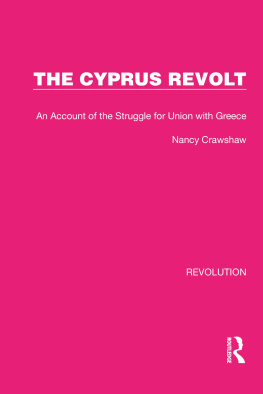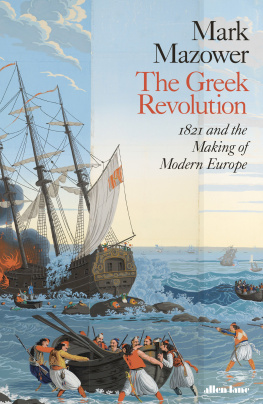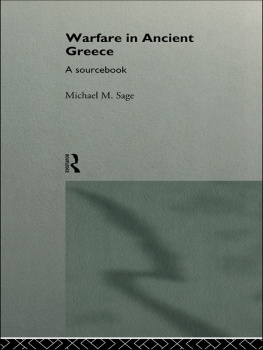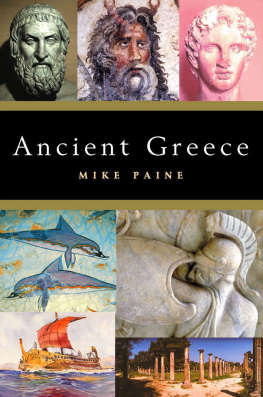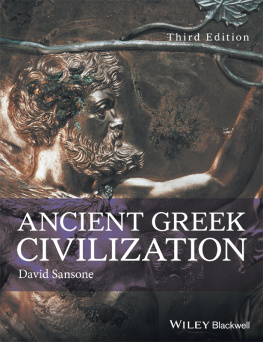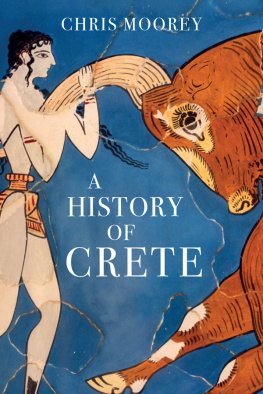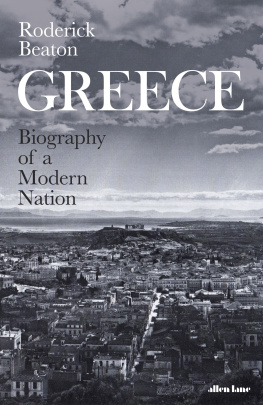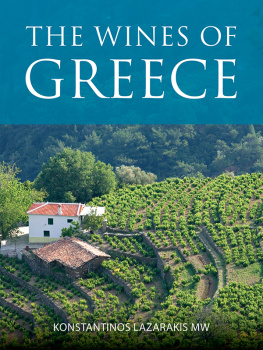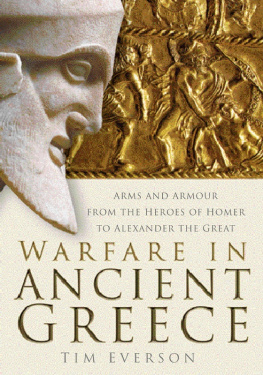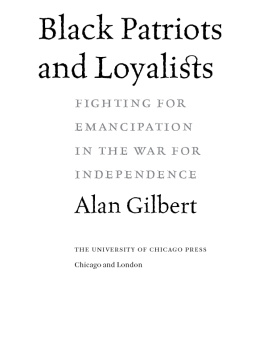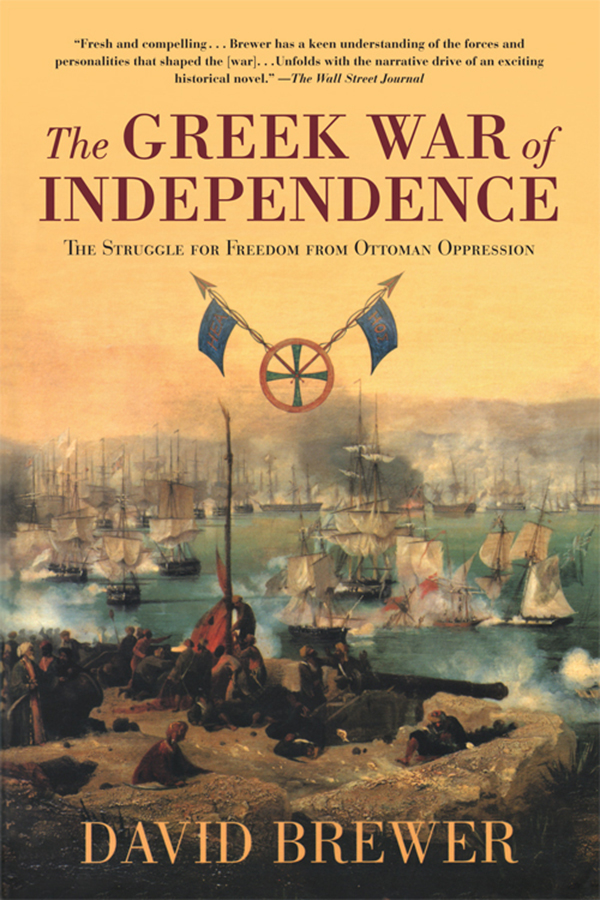This edition first published in the United States
and the United Kingdom in 2011 by Overlook Duckworth
NEW YORK:
The Overlook Press
Peter Mayer Publishers, Inc.
141 Wooster Street
New York, NY 10012
www.overlookpress.com
For bulk and special sales, please contact
LONDON:
Gerald Duckworth Publishers Ltd.
90-93 Cowcross Street
London EC1M 6BF
www.ducknet.co.uk
Copyright 2001 by David Brewer
All rights reserved. No part of this publication may be reproduced or transmitted in any form or by any means, electronic or mechanical, including photocopy, recording, or any information storage and retrieval system now known or to be invented, without permission in writing from the publisher, except by a reviewer who wishes to quote brief passages in connection with a review written for inclusion in a magazine, newspaper, or broadcast.
ISBN 978-1-46831-251-5
For Elisabeth
Rise like Lions after slumber
In unvanquishable number
Shake your chains to earth like dew
Which in sleep have fallen on you.
S HELLEY , The Mask of Anarchy
. Alphonse-Apollodore Callet, LEmbarquement des Parganiotes
. Koras and Rgas, by Albrecht Adam
. Ali Pasha on the lake at Butrint, by Louis Dupr
. A sketch of Ali Pashas Innina
. Monemvasa, by P. Baccouel
. Bishop Yermans raising the flag of independence, by Ludovico Lipparini
. Portrait of Thedhoros Koloktrnis, lithograph by Franz Hanfstaengl
. Makriynnis, by Hanfstaengl
. Mavrokordhtos: in 1819, lithograph by Gallot; as fop, lithograph by Hanfstaengl; and as military commander, by Oliver Voutier
. Byron as glorious youth, by Thomas Phillips
. Byron aged 35, by Count dOrsay
. Eugne Delacroix, Scnes des massacres de Scio
. The Valley of the Soli, engraving after a painting by W. L. Leitch
. Thomas Gordon, lithograph by Hanfstaengl
. Andras Miaolis, lithograph by Hanfstaengl
. Edward John Trelawny, by Joseph Severn
. Odysseus Andhrotsos, by A. Friedel
. Eugne Delacroix, La Grce sur les ruines de Missolonghi
. Horace Vernet, La Retraite
. Thedhoros Vrizkis, The Exodus from Mesolongi
. Panayitis Zogrphos, Siege of Athens, 18267
. Ambroise-Louis Garneray, Navarino, 20th October 1827
. Innis Kapodhstrias, by Am. Bouvier
. The assassination of Kapodhstrias, by Dhionsios Tskos
The author and publisher would like to thank the following for permission to reproduce illustrations: Plate , Benaki Museum, Athens.
My sincere thanks, not just formal ones, to my agent Bruce Hunter of David Higham Associates, who backed this book from his first sight of the text; to all at John Murray and especially my editor Grant McIntyre, whose perceptive advice gave this book its shape; and to my daughter Sophie and my nephew Nick McDowell who pointed the way through the, to me, uncharted seas of publishing to such congenial havens.
The book has been greatly improved by the meticulous and thoughtful copy-editing of Peter James. Any remaining errors are, of course, my responsibility.
My thanks also to the unfailingly helpful staff of a number of libraries and museums: in London, the British Library, Kings College Library and the London Library; in Athens, the Gennadios Library and the National Historical Museum; and elsewhere in Greece the Koras library in Chios, the Mesolongi museum, the Navplion public library, the Ren Puaux gallery and library in Plos, and the Centre for Hellenic Studies in Thessalonika. Quotations from Richard Clogg, ed., The Movement for Greek Independence 17701821, Macmillan, 1976, are reproduced with permission of Palgrave.
Many people have read part or all of the text and their comments have been most valuable. Thank you to Geoffrey Chandler, Irene Chapman, Anne Fleming, Olga Hill, John Laughland, Geoffrey Lewis, Ethel Martin, Christopher and Sue McDowell, Diana Owen, Michael Ward, Bill White and Penry Williams. I am particularly indebted to two friends who have read the whole text: to Nikos Kokantzis, not least for pointing out ways in which I may unwittingly have offended Greek susceptibilities, and to Jerry Schneewind for his unerring advice on accuracy, clarity and proper presentation of the wider picture. Special thanks also to James and Poppet Codrington for access to and guidance through the Codrington papers, and their hospitality while I studied this rich archive.
A writers family is always part of the making of a book, and my own family has been involved in the fortunes of this one for a long time. Thank you to my daughters, who have given it their interest and backing for as long as they can remember, and to my stepchildren who have joined that chorus of generous encouragement. My biggest thank-you goes to my wife Elisabeth. Her patience and persistence in turning jumbled manuscript into a presentable text, and her forthright comments on it, were invaluable. But her greatest contribution was her love and support throughout the pains and pleasures of the books emergence from the chrysalis of an idea to fly off fully formed into the sunlight. It is her book too, and I am delighted to dedicate it to her.
The large number of Greek names which inevitably appear in this story can be an irritant or even a barrier to a reader who is not sure how to pronounce them. Stress often falls in unexpected places, so has been marked, but pronunciation of Greek is relatively straightforward because unlike in English each letter or combination of letters is always pronounced the same. In the transliteration of Greek used here, the vowel sounds are:
| a | as in b a sket |
| e | as in b e d |
| i | as the first i in bl i ni |
| o | as in b o x even at the end of a word |
| ou | as in b oo t |
The only unusual consonant sounds are:
| ch | as in lo ch |
| dh | a soft th as in th en but |
| th | a hard th as in th in |
Anglicised versions have been used for the better-known place names Athens, Corinth, Hydra (not dhra) and personal names Alexander and, a bit of a hybrid, Georgios rather than Yeryios or George. Odysseus, always a problem for the transliterator, has not been changed to the strange-looking dhissefs but left in its familiar form.
All translations are by the author unless otherwise attributed.
Throughout the 1820s the major currencies were fairly stable against each other. The pound sterling was worth about 5 dollars (American or Spanish), 25 francs and just over 100 Russian roubles.
The Turkish piastre however, which was also the Greek currency, was in sharp decline during this period. A few years before 1821 there were 20 piastres to the pound, in 1824 when Byron was in Greece the rate was 50/, and by 1832 it had fallen to 86. So the piastre had lost three-quarters of its international value in a couple of decades.
What would currencies of that time be worth today? Precision is impossible, not least because relative prices have changed. For example, in Greece at that time housing was cheap and transport expensive: you could rent a good house for a year for the price of three horses. Also labour was cheap and livestock expensive: a turkey would cost a labourer four days wages. However, it is safe to say that the pound sterling in Greece then a strong currency in an impoverished country had the buying power of at least 100 today.


